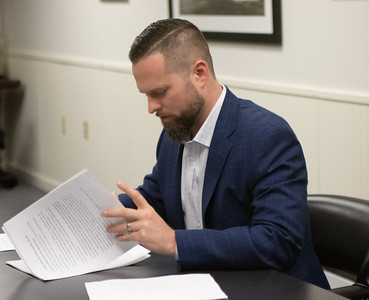What Happens When You Die Intestate In Ri

Intestacy In Rhode Island
As our East Greenwich, RI Catholic estate planning lawyer can explain, dying without a will is called dying intestate. In short, this means that your estate will be distributed in accordance with Rhode Island state law rather than your personal wishes pursuant to a will, trust, or estate plan. (R.I.G.L. §33-1-12). This process will most likely require opening a probate proceeding in your local probate court and typically involves hiring a Rhode Island probate attorney and appointing an executor of the estate. This can be a lengthy and potentially expensive undertaking, and it can also cause family disputes amongst your living relatives.
While distribution of estate assets may operate in a way that you find unobjectionable, there is certainly the chance that unanticipated results will occur and sometimes you may not be happy with how your property is distributed pursuant to a probate court. For example, as detailed herein, your grandparents could have a greater right to any inheritance in your estate than your spouse.
Distribution Of Real Estate
If you have a surviving spouse, succession goes to the surviving spouse.
If you die intestate and leave a surviving spouse, the successorship of any real estate property owned by you and your spouse depends on the manner in which you and your spouse own the property. According to Rhode Island estate planning law, any property that is sold or otherwise conveyed to two or more persons is presumed to be tenancy-in-common unless the conveyance expressly states otherwise. (R.I.G.L. §34-3-1).
If you and your spouse own a property as tenants-in-common in Rhode Island and you die intestate, the ownership of your portion of the property will pass to your heirs and your surviving spouse will be entitled to receive solely a life estate in that property. (R.I.G.L. §33-1-5). A life estate is a type of property ownership where the “life tenant”, in this case your surviving spouse, is able to use and enjoy the property for his or her natural life but is unable to sell the intestate spouse’s ownership interest. Upon the death of your surviving spouse, the ownership of the property will transfer to your heirs.
In comparison, if you and your spouse own a property in Rhode Island as Tenants by the Entirety or through joint tenancy and you die intestate, then the surviving spouse will inherit 100% of your share of that real estate property. In other words, your surviving spouse will not only be able to use and enjoy the real estate property during their lifetime, but they will also be able to convey the property at their sole discretion.
In addition to the ownership interest in any real estate owned by the intestate person transferring in accordance with Rhode Island rules of succession, as described in further detail below, the surviving spouse must request from the probate court a spousal election in order to inherit the remainder of the intestate spouse’s personal estate (“Spousal Election”). (R.I.G.L. §33-28-1). This spousal election can be awarded only by a Rhode Island probate court, as described in R.I.G.L. §33-1-10. As you can see, setting up a trust beforehand can simplify estate planning.
Succession To Children Or Descendants, Parents, Or Brothers And Sisters
If you die intestate in Rhode Island and own real estate as the sole tenant, it shall descend in equal portions as follows:
- First, if you have a spouse and descendants, to your surviving spouse as a life estate only if surviving spouse opts for spousal election pursuant to R.I.G.L. §33-28-1. The surviving spouse may also petition the probate court for full ownership of the intestate’s real estate property provided that the value of the real estate is less than one hundred and fifty thousand dollars ($150,000.00). If the value of the real estate exceeds $150,000.00, the probate court may order the administrator of the estate to sell the property and distribute $150,000.00 to the surviving spouse from the sale. (R.I.G.L. §33-1-1 )(R.I.G.L. §33-1-6).
- Second, if you have descendants and no spouse, your real estate property shall pass to your children or your grandchildren, if any. A child born out of wedlock has the same rights to inheritance as if born in lawful wedlock. R.I.G.L. §33-1-8. Any such child whose parents shall lawfully intermarry and shall acknowledge him or her as their child shall be deemed legitimate. Id.
- Third, if you don’t have children or grandchildren, then your real estate property shall pass to your parents in equal shares, or to the surviving parent if one of your parents is deceased. Note if you have a spouse and parents but no descendants, your surviving spouse will get up to $150,000.00 of your real estate with a life right. Everything else will go to your parents.
- Fourth, if none of your parents survive you, then your real estate property shall pass to your brothers and sisters, and to their children.
- Fifth, if none of your brothers or sisters or their descendants survive you, then your real estate property shall pass to your grandparents in equal shares. (R.I.G.L. §33-1-2).
- Sixth, if none of your grandparents survive you, then your real estate property shall pass to your uncles and aunts, or their descendants.
- Seventh, if none of your grandparents, nor uncles, nor aunts, nor their descendants survive you, then your real estate property shall pass to your great grandparents in equal shares.
- Eighth, if none of your great grandparents survive you, then to your great uncles and great aunts and their descendants, and so on passing to the nearest lineal ancestors and their descendants.
Distribution Of Chattels Or Personal Property
The surplus of any chattels or personal estate property of a deceased person, not bequeathed in a will or trust, after the payment of his or her just debts, funeral charges, and expenses of settling his or her estate, shall be distributed by order of a Rhode Island probate court in the following manner:
- (1) The sum of fifty thousand dollars ($50,000) from the surplus and one-half (1/2) of the remainder to the widow or surviving husband forever, if the intestate died without descendants.
- One-half (1/2) of the surplus to the widow or surviving husband forever, if the intestate died leaving descendants.
- The residue shall be distributed among the heirs of the intestate and discretionary allowance provided by §§33-1-5 and 33-1-6.
If you die without any grandparents, aunts or uncles (or their descendants), great aunts or uncles, or great grandparents, then the whole of your estate will go to your surviving spouse. (R.I.G.L. §33-1-3). If you don’t have any relatives to inherit your property, then your real estate and personal property will go to the State of Rhode Island.
As indicated, leaving the survivorship of your real estate and personal property subject to the rules of succession in Rhode Island is a risky endeavor that will inevitably require intervention from Rhode Island probate court, which is costly and could potentially work against your surviving spouse’s best interests and your intentions.
For example, you may have wanted the entirety of your estate to go to a surviving spouse or significant other. As we have seen, there are situations where a great aunt or uncle may receive monies or real estate or personal property that you would prefer to go to your surviving spouse.
Furthermore, without a trust established as part of your estate plan, monies could go directly to a minor or a young adult that may squander their inheritance or expose it to creditors.
The good news is that you can override the rules of succession as established by Rhode Island estate planning law through comprehensive estate planning, thereby ensuring that your real and personal property is distributed in accordance with your wishes. A Rhode Island estate planning lawyer at Aptt Law LLC can help you with this process. In fact, Geoffrey M. Aptt, Esq. — the founder of Aptt Law, LLC — has been practicing law since 2014 and has worked on a range of complex matters including corporate transactions, employment, real estate, and trust litigation. Serving Rhode Island and Massachusetts, our firm is ready to put our experience to work for you!


